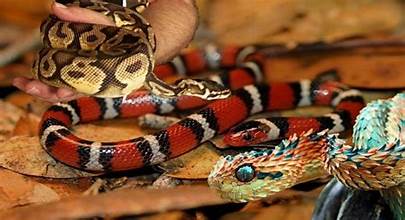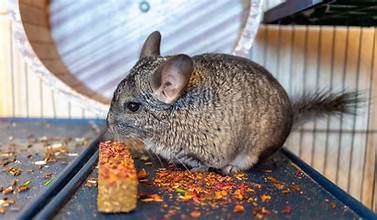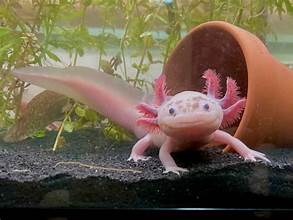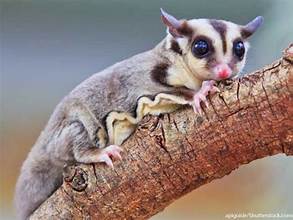When feeding exotic pets, choosing the right fruits and vegetables is essential to ensure they receive proper nutrition without health risks. Many exotic pets have specific dietary needs, so understanding which foods are safe and which to avoid is crucial. Here’s a comprehensive guide on safe fruits and vegetables for various exotic pets.
General Guidelines for Feeding Fruits and Vegetables to Exotic Pets
- Wash thoroughly –
It’s crucial to always wash fresh produce before serving to your exotic pet. This simple step helps remove pesticides and contaminants, ensuring the safety of your pet’s meal.
- Serve in moderation –
Fruits often contain high sugar levels and should be fed in limited quantities.
- Avoid toxic foods –
Some fruits and vegetables can be harmful to specific species.
- Provide variety –
A mix of different fruits and vegetables ensures balanced nutrition.
- Know your pet’s needs –
Each exotic pet has different dietary requirements.
Safe Fruits and Vegetables for Different Exotic Pets
Reptiles
- Ball Pythons & Other Snakes –
Snakes are strict carnivores and should not eat fruits or vegetables.

- Bearded Dragons:
- Safe Fruits: Apples (without seeds), bananas, blueberries, grapes, mango, papaya.
- Safe Vegetables: Collard greens, mustard greens, dandelion greens, squash, bell peppers.
- Avoid: Avocado, rhubarb, citrus fruits (can cause digestive upset)
- Leopard Geckos
are insectivores; they do not need fruits or vegetables.
- Tortoises:
- Safe Fruits: Strawberries, melons, apples, pears, figs.
- Safe Vegetables: Kale, dandelion greens, escarole, turnip greens.
- Avoid: Spinach, iceberg lettuce (low nutritional value), and avocado.
Small Mammals
- Chinchillas:
- Safe Fruits: Apples (without seeds), blueberries, pears (in moderation).
- Safe Vegetables: Carrots, celery, kale, dandelion greens.
- Avoid: High-sugar fruits (bananas, grapes), corn, and onions.

- Rabbits:
- Safe Fruits: Strawberries, apples, raspberries, melons (small amounts).
- Safe Vegetables: Romaine lettuce, bell peppers, parsley, and cilantro.
- Avoid Iceberg lettuce (low nutrition), potatoes, and onions.
- Guinea Pigs:
- Safe Fruits: Oranges (high in Vitamin C), apples, strawberries, and kiwis.
- Safe Vegetables: Bell peppers, cucumbers, carrots, and zucchini.
- Avoid: Potato, onion, and avocado.
Birds (Parrots, Finches, Canaries, etc.)
- Safe Fruits: Apples, pears, berries, mango, papaya, grapes.
- Safe Vegetables: Sweet potatoes, carrots, leafy greens (kale, spinach, parsley in moderation).
- Avoid: Avocado, chocolate, caffeine, onions, garlic.
Rodents (Gerbils, Hamsters, Rats, Mice)
- Safe Fruits: Apples, bananas, pears, and berries (in small portions).
- Safe Vegetables: Broccoli, spinach (small amounts), carrots, bell peppers.
- Avoid: Citrus fruits, onions, garlic, and raw beans.
Aquatic Pets (Turtles, Axolotls, etc.)

- Turtles (Omnivorous species like Red-Eared Sliders):
- Safe Fruits: Berries, melons, apples, bananas (occasional treats).
- Safe Vegetables: Romaine lettuce, dandelion greens, collard greens.
- Avoid: Rhubarb, avocado, citrus fruits.
- Axolotls are strictly carnivorous;
They should not eat fruits or vegetables.
How to Serve Fruits and Vegetables
- Chop into small pieces –
It makes eating and digesting easier for your pet.
- Offer fresh or lightly steamed –
Some pets prefer steamed veggies for better digestion.
- Remove seeds and pits –
Many contain toxins that are harmful to pets.
- Monitor reactions –
Introduce new foods gradually and watch for digestive issues.
Final Thoughts
Feeding your exotic pet the right fruits and vegetables is integral to their health. Always research specific dietary needs, and don’t hesitate to consult a vet if you’re unsure about certain foods. With their guidance, you can provide a well-balanced diet that can help ensure a long, happy, and healthy life for your exotic pet!





Pingback: Caring For Your Kinkajou: What You Need To Know - Positvley Pets